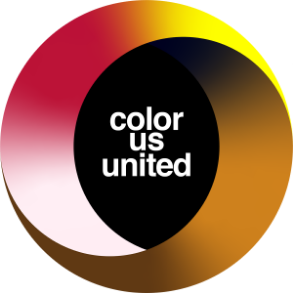Send us tips about what is happening at your institution or company regarding DEI. We want to assure you that any names or responses to this DEI Tip form will remain completely anonymous.
Fixating on Race Will Not Solve America’s Deep Problems
June 2, 2021
By Kenny Xu
In Atlanta, a man shot 8 people in massage parlors. 6 of the victims were Asian American, 1 was Hispanic, and 1 was a White American. The motive still remains unclear; one source reported a sex addiction, while the racial hate crime motive remains unresolved. From there, a hashtag erupted: Stop Asian Hate, complete with its own Twitter-sponsored lotus flower.
There is no doubt that many Asian Americans in particular are reeling from the aftermath of the Atlanta violence as well as the violence against Asian Americans in Oakland, San Francisco, New York, and many other cities. As the President of Color Us United, an organization which fights racism regardless of its source, I have the deepest sympathy for them.
Yet, I also saw how many media and academic outlets threw more fuel to the fire by blaming “white supremacy,” for the incidents against Asian Americans. Winking at racist motives and categorizing people and violence by race has been a way for our politicians to divide our country into infighting racial groups – Whites against Blacks, Whites against Asians, Blacks against Whites, Blacks against Asians. “Black on Black” crime is one such example: when media sources paint pictures of decrepit, Black, inner cities, they ignore the factors that really cause violence and illness within those wards. When the media fixates on racial narratives, they ignore the larger picture, and they heighten racism.
For example, blaming anti-Asian violence on white supremacy is a racist injustice to the many Asian American victims of Black or other non-White perpetrators. (In 2018, the latest available data, Asians were the targets of violence from 28 percent Blacks, 25 percent Whites, and the rest from other races.) On the other, pinning anti-Asian violence on Black Americans is a racist injustice in a vice versa manner, as well. The statistics reveal that Asian Americans experience violence at the hands of all racial groups. Crafting a single narrative around race and crime excludes many criminals by their race and its thus racist.
It is indeed true that crime went up against Asians in 20201. But crime went up against every racial group in 2020. In fact, homicides went up 36 percent in major American cities according to criminologist Jeff Asher, at a rate unprecedented in the history of modern criminology. “It has been more than a half-century since the country saw a year-to-year murder rate that jumped nearly 13%,” Asher says. Furthermore, Black Americans are the victims of the largest increase in homicides this year, as the spike in homicides during the summer of 2020 mainly targeted Black-majority neighborhoods. What we had with crime in America in 2020 isn’t just an Asian or a Black or a White tragedy – it is an American tragedy.
No one racial group deserves the spotlight on violence, particularly violence that isn’t directly linked to clear racist motives. (The Charleston church shooter in 2015, for example, definitely had a racist motive.) But when we focus the scope of our attention on race when the evidence does not justify it, we become more racist ourselves.
Crime is just one example of how endless fixation on race leads to outcomes that Americans would correctly deem racist. At California’s recently passed ethnic studies curriculum, students learn about “the often-untold struggles and contributions of Native Americans, African Americans, Latino/a/x Americans, and Asian Americans in California.” It seem innocuous at first, but then you read further that the chair of the commission that drafted the ethnic studies commissions wants to teach these ethnic studies program through the lens of “white supremacy,” which will be used as a framework to evaluate even current disparities and issues among minorities. This style of teaching creates all sorts of racist outcomes.
In Santa Barbara, California, for example, in one model ethnic studies curriculum, teachers are asked to pick students of only Hispanic or Latino ethnicity to attend various activists from various “diversity” nonprofits instruct children to yell out ethnic slurs that they have been called in the past. In a deposition, a teacher named Katie Hedden recalled attending a training where she had to separate herself in with all the other White teachers and “listen” to the teachers of color recount grievances against her “kind” without having the opportunity to response. These are actually racist and discriminatory programs, that send messages that one should feel ashamed for the colors of their skin in which they were born.
Furthermore, fixation on race hurts even those programs in which race is not supposed to be a factor at all. In California’s Mathematics framework, a focus on racial “equity” teaches that obvious concepts like “showing your work” and “focus[ing] on the right answer” are actually white supremacist. What is the answer? A “social justice math” curriculum, says the California Math curriculum. Yet a similar “equitable” math curriculum tried in North Carolina for racial minorities would create alternative “pathways” for people that ironically do not teach math with nearly the kind of rigor that would stand to benefit these racial minorities. In an effort to create inclusion, minorities are getting a watered-down curriculum, further enhancing the – may I say, racist – patterns of grouping and then limiting minority math achievement based on their race.
And in colleges, it gets worse. Today the endless focus on race is resulting in the legitimization of actual racism. Harvard University and Yale University actively, persistently discriminate against well-qualified Asian Americans to achieve their desired racial balance that stems from a guilt about their lack of Black and Hispanic people in their schools. (I write much more specifically about this in my book An Inconvenient Minority.) Columbia University’s separate graduations for people of different races, while optional, only reinforces ideas of self-marginalization that actually divide people on the basis of race. This leads to fellowships, scholarships, and awards, often taxpayer funded, that are present only to certain racial minorities that exclude poor Whites, Asians, and many other groups. This is racism.
When these college students, racially primed, leave for the workforce, they take their fixation on race with them – and promote racism in their businesses. Coca-Cola recently was caught telling its workers to “be less white.” Why? Because “to be less white” is “to be less oppressive, to be less arrogant, to be less trusting, to be less defensive, to be less ignorant, to be more humble, to listen, to believe, to break with apathy and break with white solidarity.” That is to say, being white means inherently that you are all of those things – an inherently racist statement. All this while Coke demands that law firms it contracts with hire 15 percent Black Americans, which of course, is a diversity quota that is racist against every other minority, and Whites.
What is the final end of this race fixation? It is the complete replacement of the truly needy with racial groups that are stereotyped as truly needy. Oakland’s new pilot program that gives low-income families $500 a month will discriminate against White and Asian families who are just as needy as their Black and Latino counterparts. And Vermont just became the first state in the nation to explicitly mandate the prioritization of Black Americans in the coronavirus vaccine rollout. Their rationale is that Black Americans are more likely to get the virus. But all poor Americans are more likely to get the virus regardless of race, and Asian Americans on Medicare are over 10 times as likely to get the virus as Whites and nearly as likely to get it as Blacks. Yet there is no prioritization for the vaccine for Asians. The result is a racist outcome that discriminates against poor Whites, Latinos, and especially Asians.
This endless fixation on race has to stop. At this point, it is not only inflaming racial tensions in our culture but actually creating more racism. Fixating on race will not solve America’s deepest problems.
If you are interested in a society that truly respects who we are without regards to race, you can join me at the organization I founded, Color Us United. We are launching a massive campaign through the courts and introducing legislation to reduce the role race plays in modern American life. America has deep problems that need to be solved. But they cannot be solved with racial division and blaming each other. They can only be solved united.
Kenny Xu
He has challenged Harvard University for discrimination against Asian Americans, worked as the Director for Media Outreach against California Proposition 16 (race preferences) and written for national publications like City Journal, The Federalist, The Daily Signal and The Washington Examiner. He has been interviewed by The New York Times, NPR, the Epoch Times, Fox News and others. His first book An Inconvenient Minority on the Ivy League discrimination cases and the lasting consequences of the Left’s diversity ideology debuts July 2021. A second-generation Chinese American, Kenny lives in Northern Virginia.
REPRESENT ME
Please sign up if you agree with our goal of living in a United and Free America. We will speak out – via all forms of media – against those who claim America is fundamentally a racist, homophobic, anti-Semitic, or anti-Asian society. We will present the caring America that wants liberty and prosperity FOR ALL.
REPRESENT ME
Please sign up if you agree with our goal of living in a United and Free America. We will speak out – via all forms of media – against those who claim America is fundamentally a racist, homophobic, anti-Semitic, or anti-Asian society. We will present the caring America that wants liberty and prosperity FOR ALL.







